Ulcerative Colitis
Raktatisaar (Ulcerative Colitis)
More than 15,000+ Patients of Ulcerative Colitis, Worldwide Treated Successfully over the last 25 Years with Ulcerin Compound 1 & 2

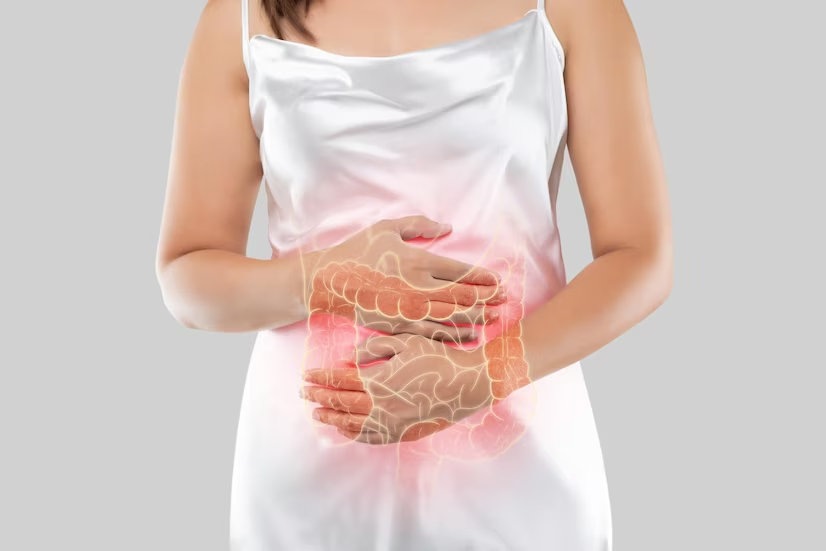
About the Disorder
Raktatisaar (or Ulcerative Colitis in Modern English) is a long-term condition that causes inflammation and sores (ulcers) in the lining of the large intestine and rectum. The inflammation usually begins in the rectum and sigmoid colon and spread upward to the entire colon. Ulcerative colitis rarely affects the small intestine. The severity of the symptoms varies, depending on how much of the rectum and colon is inflamed and how severe the inflammation is.
Raktatisaar occurs at the rate of approximately five cases per 100,000 people. The disease pattern is one of the remission and exacerbation. It can occur at any age but its onset is most common among people between ages of 15 – 40. Ulcerative colitis affects male and females equally and appears to run in some families.
Causes
- Autoimmune factors
- Food allergies
- Collagen disorders
- Genetic factors
- Infection and Psychogenesis
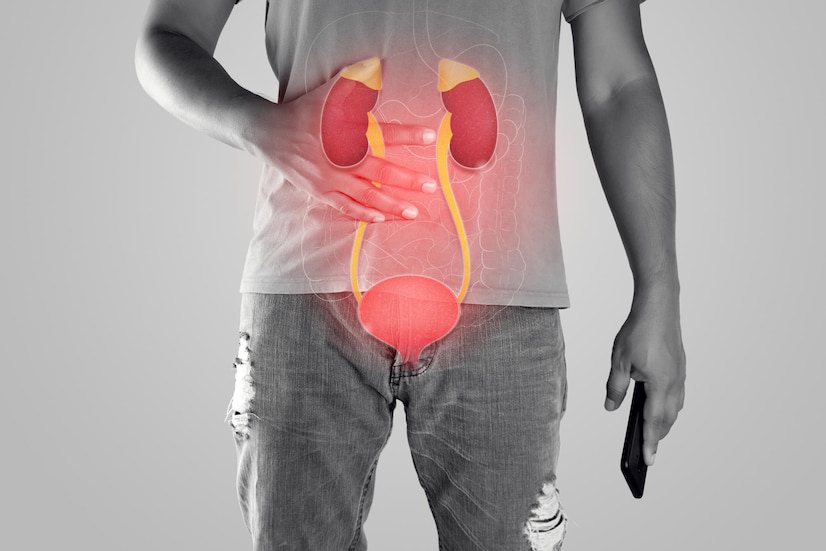
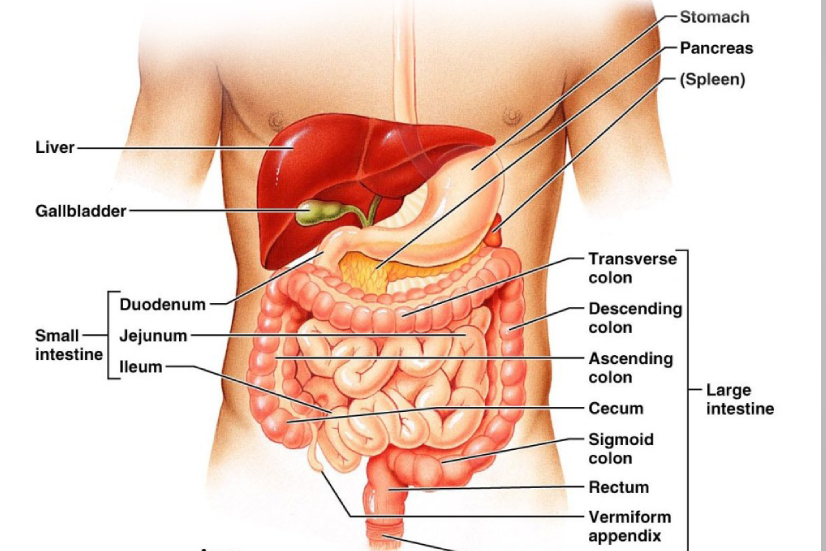
Symptoms of Raktatisaar (Ulcerative Colitis)
- feeling generally unwell
- loss of appetite
- weight loss
- having temperature
- feeling tired
If patient have proctitis, patient may not have diarrhoea, but still frequently feel an urgent need to have a bowel movement.If patient has ulcerative colitis, there is a chance that he or she could develop problems in other parts of your body. These can include mouth ulcers, skin rashes and inflammation (redness or pain) in eyes, skin or joints. Problems outside the large bowel often occur during a flare-up but can also happen while patient is in remission.
How Raktatisaar (Ulcerative Colitis) affects the intestines?
In Ulcerative Colitis, inflammation is triggered by some unknown elements. Hyperemia and swelling occur as part of the vascular response. The swollen, engorged bowel is fragile and is therefore inclined to ulcerate, thus creating a break in the mucosal barrier. Digestive enzymes and intestinal bacteria act upon this exposed tissue, causing further irritation, inflammation, ulceration and bleeding.
What are the symptoms of Raktatisaar (Ulcerative Colitis)?
- Frequent loose stools with passage of blood and mucous
- Patient may complain of abdominal pain
- Fatigue
- Loss of weight
- Loss of body fluids and nutrients
- Some patients also have skin lesions
- Joint pain
- Inflammation of eyes and
- Liver disorders
How to diagnose Raktatisaar (Ulcerative Colitis)?
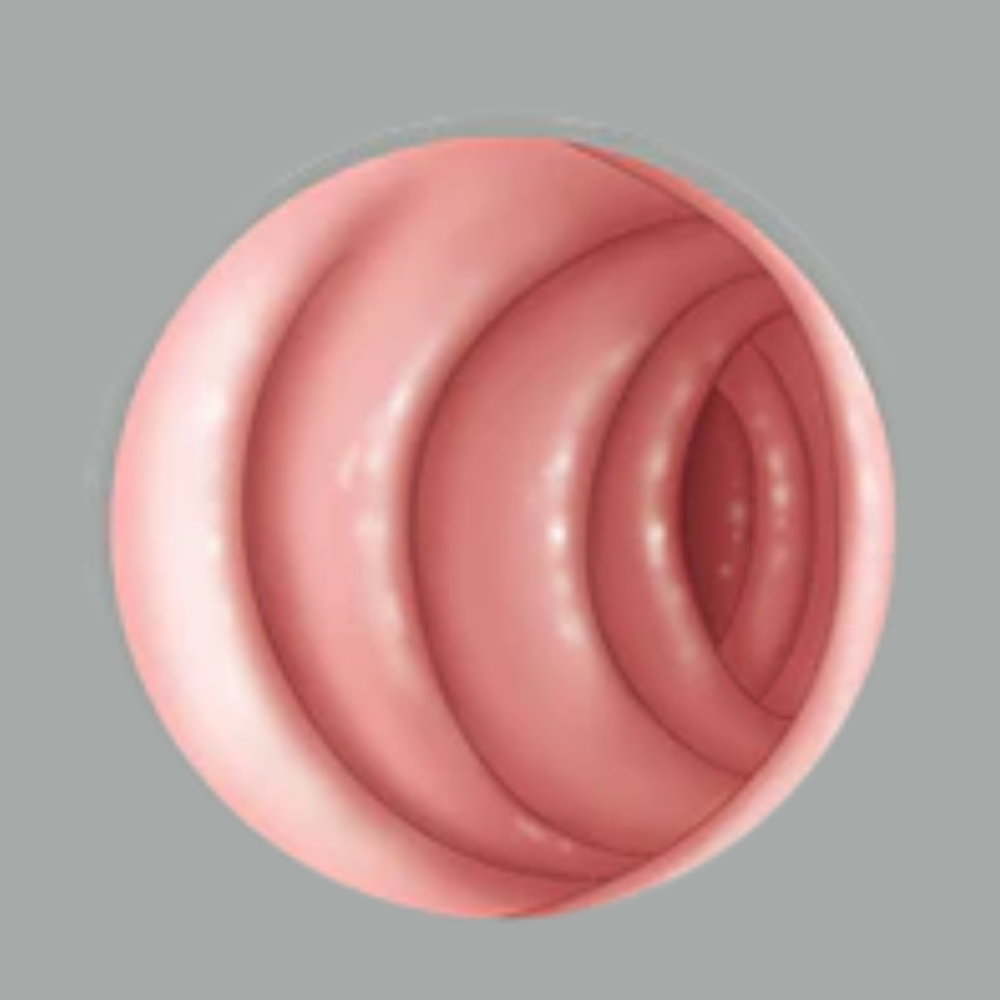
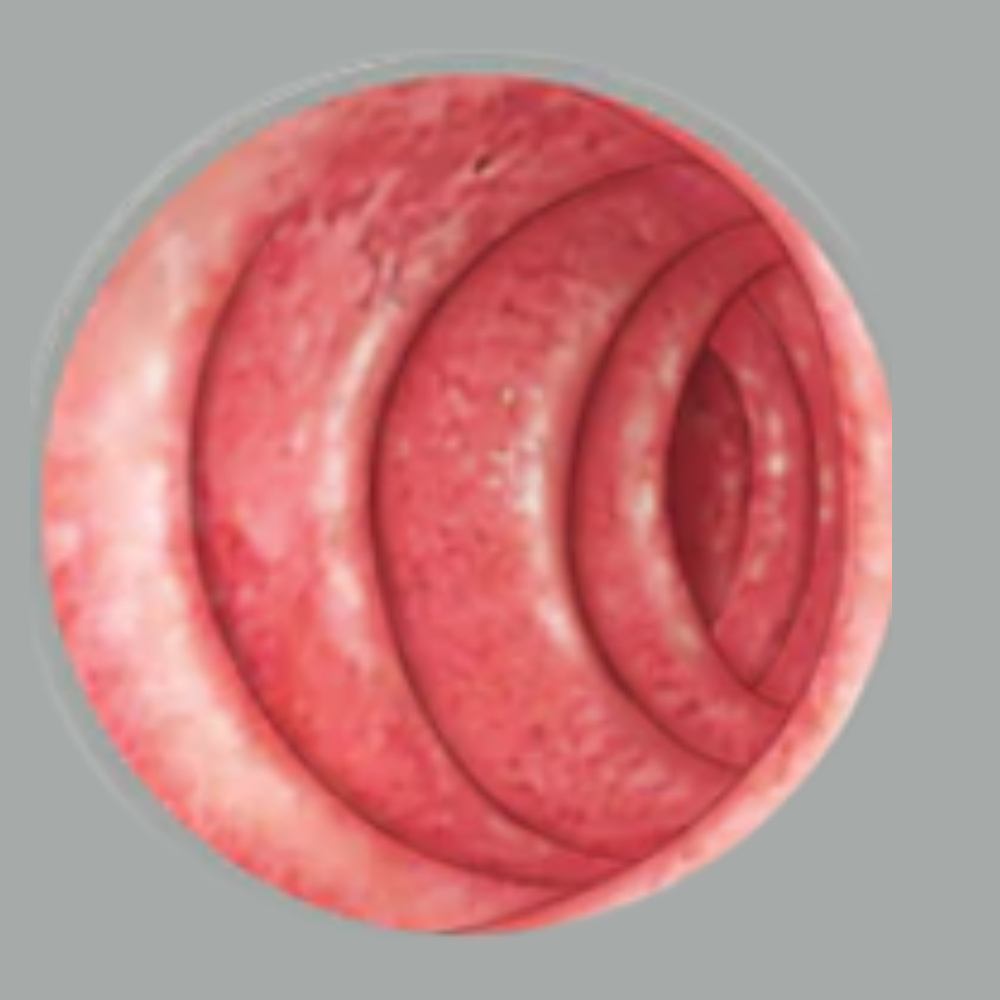
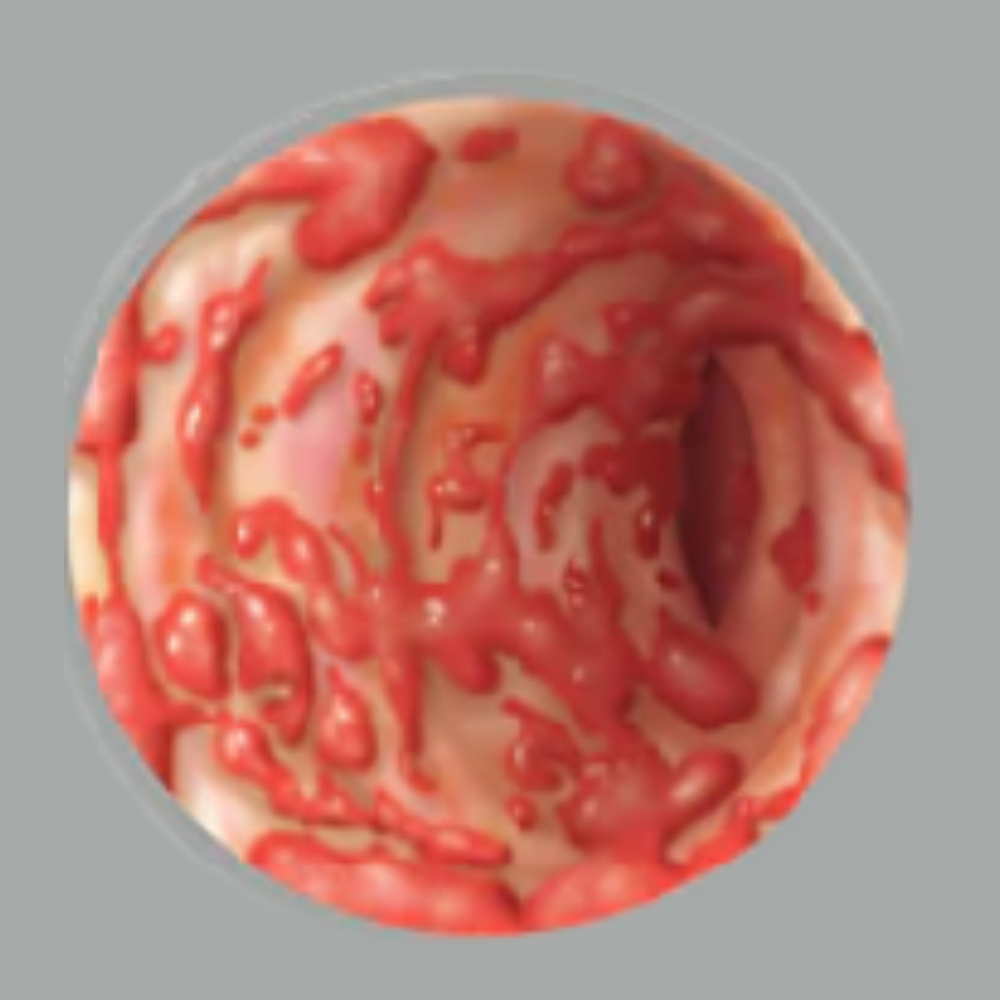
Healthy
Moderate Colitis
Severe Colitis
Raktatisaar (Ulcerative Colitis) diagnosis is done after carefully taking the history and physical examination of the patients, then the patients are subjected to sigmoidoscopy and colonoscopy examination. The rectum and colon are seen through a flexible optical / camera tube which is inserted through anus. During this examination a sample of tissue from the lining of the colon is taken to observe under a microscope. This is called a histopathology examination. A barium enema is helpful in determining the nature and the extent of the disease in patients.
Ayurvedic Remedies:
For Ayurvedic treatment of ‘Ulcerative Colitis’ please contact our physicians at:
Best Ayurveda Clinic
- +1-416-804-1500
- +1-647-276-1111
- info@bestayurveda.ca
- 2250 Bovaird Dr. E, Unit 316, Brampton ON L6R0W3
